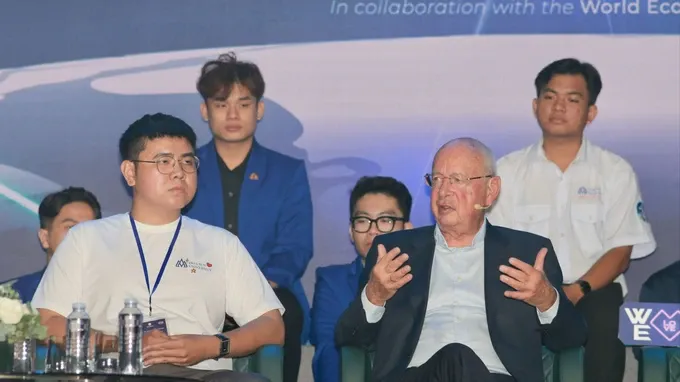
The Ho Chi Minh City People's Committee hosted this event, with the participation of Professor Klaus Schwab, the founder and President of the World Economic Forum (WEF) along with Chairman of the Ho Chi Minh City People’s Committee Phan Van Mai and approximately 1,200 attendees who are leaders from various departments, startups, enterprises, innovative businesses and outstanding young people in Ho Chi Minh City.
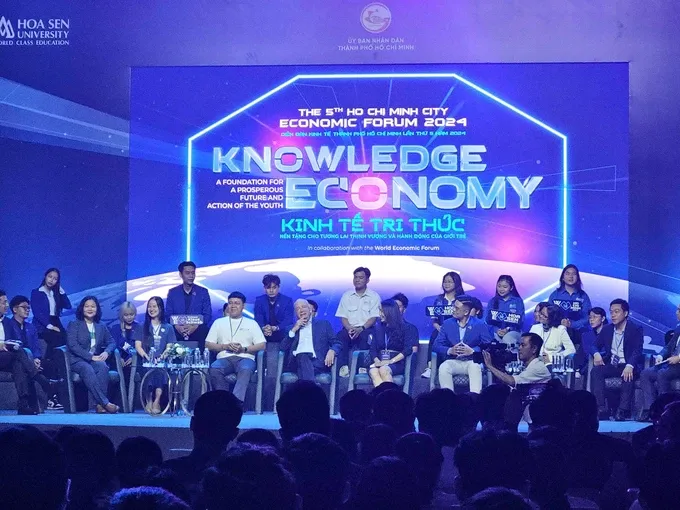
Professor Klaus Schwab spent over an hour sharing an overview of the knowledge economy as the basis for the formation and development of the fourth industrial revolution, along with the advantages and challenges that Vietnam is now facing.
According to Professor Klaus Schwab, Vietnam in general and Ho Chi Minh City in particular have significant advantages for the development of a knowledge economy such as a huge pool of young workforce and tech-savvy talents. However, to actualize the potentiality, it is essential for breakthrough solutions in education and training associated with the practical needs of the city's economy.
Professor Klaus Schwab predicted that Vietnam's economy could gain US$2 trillion by 2050 based on several factors, including a population of over 100 million people, Vietnam's GDP size forecast of US$430 billion in 2024, a GDP growth rate ranging from six percent to seven percent and median age in Vietnam being over 30 years.
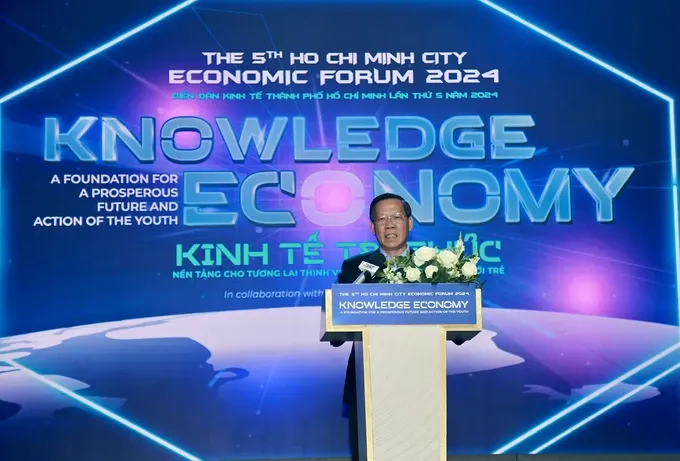
Delivering his marks at the program, Chairman of the Ho Chi Minh City People’s Committee Phan Van Mai indicated that Ho Chi Minh City is driving to achieve its dual goals of green transformation and digital transformation to boost growth.
Ho Chi Minh City is a hub gathering talents from all over the country, nurturing and developing high-quality human resources.
Every year, scientific and technological innovation competitions are organized attracting thousands of ideas and projects from students at all educational levels and young scientists, including initiatives related to technology, new materials and environmental engineering.
The outbreak of the scientific and technological innovation movement affirmed that Ho Chi Minh City's young generations are capable of to building a knowledge economy, an essential factor for sustainable development and international integration.
It is essential that the country’s young generation is not only equipped with specialized knowledge but also trained in creative skills, critical thinking and the ability to quickly adapt to new technologies, emphasized Chairman Phan Van Mai.
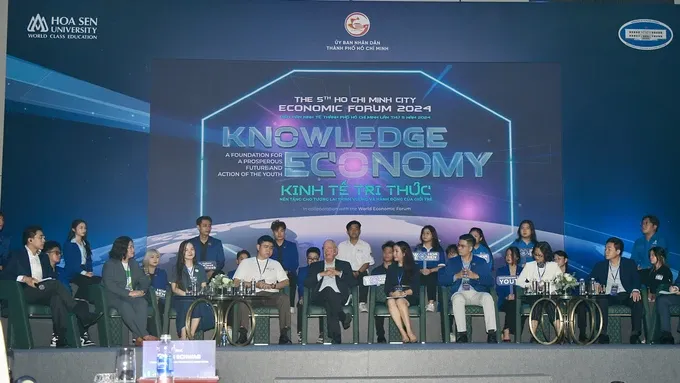
At the event, Professor Klaus Schwab identified four key areas including artificial intelligence (AI) and automation in manufacturing, e-commerce and digital services, digital infrastructure and smart urban development, sustainable development and green technology which are reshaping the technology-oriented economy in Vietnam.
Regarding Vietnam's adaptability to integration trends, Professor Klaus Schwab said that Vietnam has proactively prepared for the digital future such as the National Digital Transformation Program by 2050, with a goal of making Vietnam among the top 50 countries in digital government and digital economy by 2025.
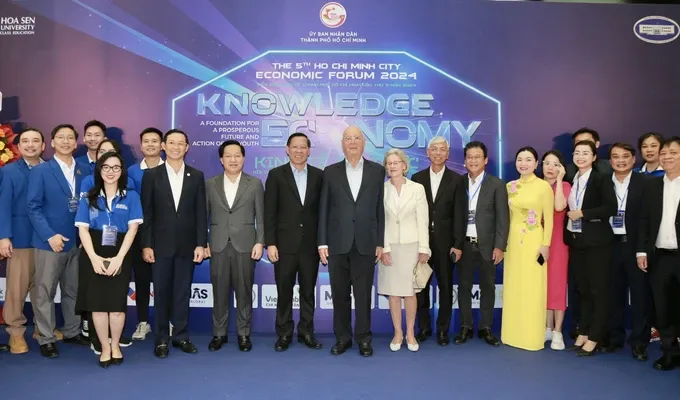
Within the framework of the program, Professor Klaus Schwab arrived in Bach Dang Wharf Park in District 1 to see the Ho Chi Minh City International Friendship Symbol designed as a Mobius circle.
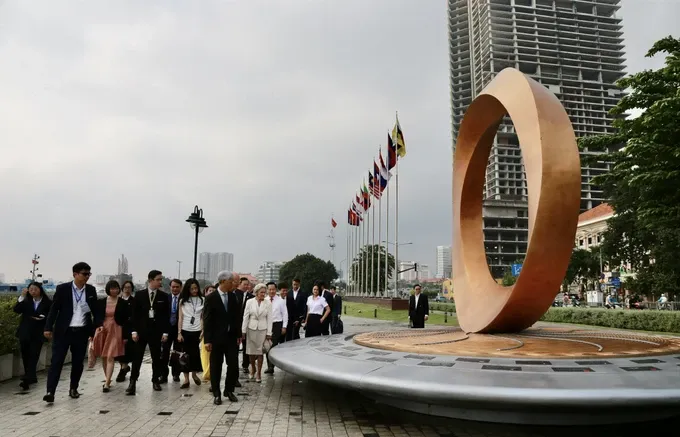
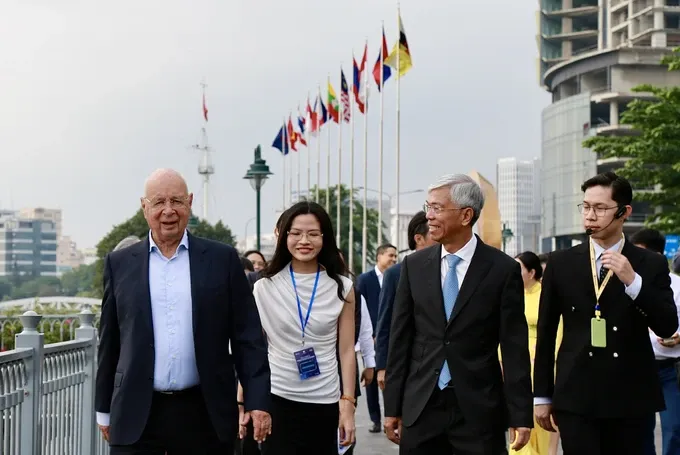
Here, Vice Chairman of the Municipal People's Committee Vo Van Hoan shared about the significance of this Mobius circle representing infinity and the concepts of continuous, sustainable and limitless development.
Besides, the symbol also shows the spirit of friendship, solidarity and long-term cooperation between Ho Chi Minh City and 58 localities around the world.
























